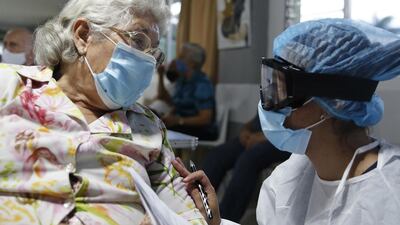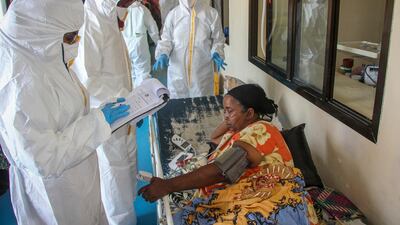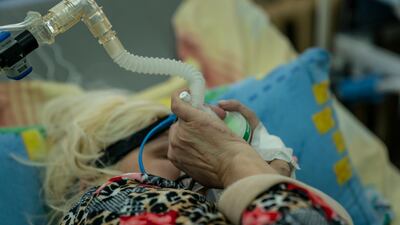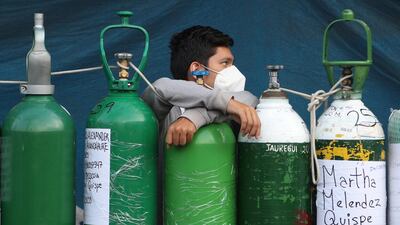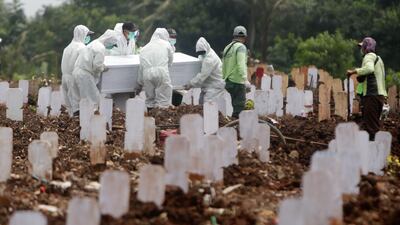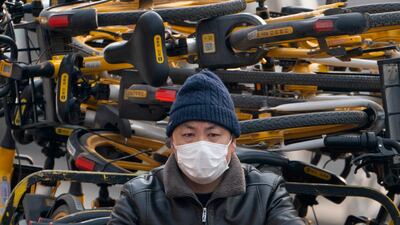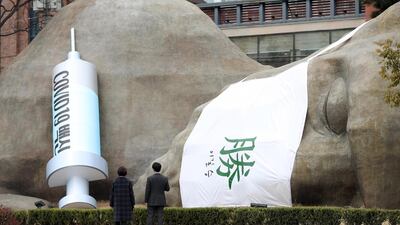A global decline in Covid-19 numbers over the past six weeks is a "good sign" but does not mean people should become complacent, a top World Health Organisation official said.
Maria Van Kerkhove, head of the WHO's emerging diseases unit, told an online Abu Dhabi Public Health conference on Thursday that easing measures would undo the positive trend.
Ms Van Kerkhove advised that countries intensify efforts to stamp out Covid-19 for good.
“According to the latest epidemiological curve, we are seeing a reduced trend globally over the last six weeks in terms of case incidence as well as reported death. This is a good sign,” she said during one of the panel discussions.
There were case surges in some countries but Ms Van Kerkhove said there was an overall global decline.
“But we should not become complacent. This is not the time to let down our guard," she said.
"We need to continue to drive down transmission and save as many lives as we can.”
Ms Van Kerkhove said there were different situations in each country, with some managing to avoid large outbreaks entirely.
Many island states have been able to implement strong measures to avoid the virus "seeding within their population".
Other countries had major outbreaks that came under control but surged again once public health measures were lifted.
"Now we are lucky seeing a decline globally and those are good trends,” Ms Van Kerkhove said.
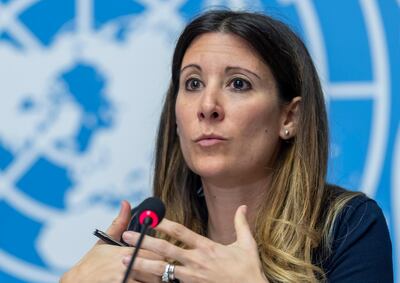
The goal is to save lives and suppress transmission, but the latest challenge is also to ensure vaccines are delivered to every person in the world, while tracking new variants of the coronavirus.
“It is critical that we make sure that safe and effective vaccines are produced in mass and that they reach all populations at risk in all countries, and not just all people in a few countries,” Ms Van Kerkhove said.
“This is critical and this is part of why Covax has been established and what we are now seeing.”
The Covax vaccination alliance comprises 19 countries and aims to deliver 150 million doses of Covid-19 vaccines to some of the world’s poorest nations in the first quarter of the year.
The goal is to deliver two billion doses to countries most in need by the end of the year.
“There is a moral obligation, a public health obligation for all of us to ensure that vaccines are reaching all those in need and at-risk individuals,” Ms Van Kerkhove said.
She said the WHO was continuously studying the severity and transmission of the virus and was now beginning to look into the effects of long Covid.
Key to overcoming the virus's spread lies in the community and belief in science-based advice to avoid an undermining of efforts, Ms Van Kerkhove said.
"We need to redouble our efforts to suppress transmission and protect lives and protect the vulnerable in a comprehensive and co-ordinated way," she said.
"We need strong global collective action to end this pandemic, strong and cohesive national leadership co-ordinated at global and regional levels because viruses know no boundaries.
"All of us are unsafe until we are safe."
